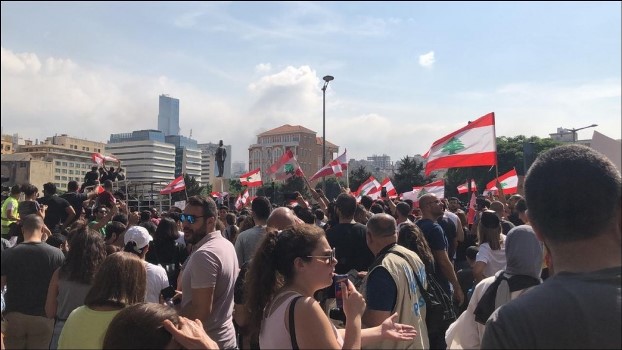
On 15th May, Lebanese voters went to the polls in one of the strangest elections in recent years. The unprecedented social collapse in Lebanon over the last few years was the background to this election. Inflation is now running at over 200% and unemployment has tripled over the last couple of years. Neither has Lebanon escaped the fallout from the Russian invasion of Ukraine, with 80% of the country’s wheat being supplied from Ukraine.
A significant feature of the elections was the official withdrawal from the race by the Future Movement, the Sunni-based electoral vehicle of the Hariri dynasty, whose leader, Saad Hariri, had been the prime minister at the head of a 20-strong parliamentary block at the last election. But others including the incumbent prime minister also did not put themselves up for election.
But despite such withdrawals, a record 1043 candidates stood in the elections. Following the 17th October 2019 uprising against the austerity measures of the then Saad Hariri government, and the mass protests that erupted after the tragic Beirut port explosion demanding accountability for the disaster, there were high hopes of seeing those outside the traditional sectarian religious-based parties and blocs elected to parliament.
An opinion poll conducted in December 2021 reported that almost 45% of Lebanese voters wouldn’t vote for the same party they had in 2018, whilst 40% were prepared to either vote for independents or supporters of the 17th October uprising. In particular, a number of parties had been formed explicitly on anti-sectarian lines, or on the basis of support for the 17th October uprising.
Officially, 13 independents were elected, although not all of them were genuinely independent of the existing blocs and parties. For example, several independents had links to Hariri’s Future Movement, and a 17th October party, Taqqadom, that won two seats, stood on lists with the Kataeb Party, which emerged from one of the most vicious sectarian militia from the civil war.
But the independents also include Melham Khalif, who in November 2019 won the Beirut Bar Association elections as an independent. Perhaps, more promising, Ibrahim Mneimnah, of the Beirut Resists campaign, had previously unsuccessfully stood for election in 2018 on the back of his involvement in the 2015 Beirut waste protests. In a press speech after his election, Mneimah emphasized opposition to sell-offs and attacks on living standards and rights, and concluded with the words, “The real battle has started today because elections are one of the frontiers against this regime. Our next appointment is in municipalities, unions, universities, and streets until we tear down the system and get back our present and future.”
Real battle starts soon
That real battle will start soon, as the incoming government will try to steer through parliament the eight conditions placed on Lebanon for a new IMF bailout agreed in April. These include lower state spending, increased taxes, privatisations, and debt reductions, with much of the burden falling on the poorest sections of Lebanese society.
Carrying this out will be more difficult given the more unstable parliament which has been elected, with the Hezbollah-Amal-Free Patriotic Movement bloc losing its parliamentary majority, but the opposing Lebanese Forces party not holding a majority either. Under Lebanon’s constitution, the key positions in the state and parliament are each allocated to specific religious groupings like Sunni Muslims, Shia Muslims and members of different Christian denominations, a system which was implicitly rejected by the mass protests of 2015, and those between 2019 and 2021.
Thus, Nabih Berri, the outgoing speaker of parliament, and leader of Amal, will face a re-election vote, which Lebanese Forces and other ‘Christian’ groups in opposition will vote down. However, as the position has to be held by a Shia (Amal and Hezbollah hold all the Shia seats), he will likely be elected by default. Other more contested elections will take place for the deputy speaker (a Greek Orthodox) and the President (a Maronite) who have to also be elected by parliament.
Key to stopping the proposed attacks on the Lebanese masses will be the struggles of Lebanese workers, and their trade unions, alongside other downtrodden layers in Lebanon, such as the large numbers of refugees from various conflicts in the region. If those genuine independents base themselves on this layer, even one or two clear voices in parliament could act as a tribune for the kind of mass struggles needed to defeat these attacks on the Lebanese masses. This could set the stage for rebuilding the workers’ movement in Lebanon and its own mass party that could begin the outline a socialist alternative to the misery that capitalism has inflicted on the country.
